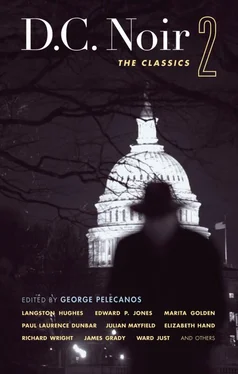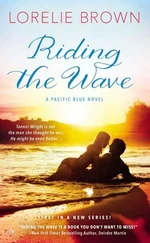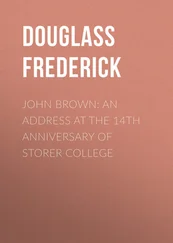Then he began to throw a flurry of punches at the air in front of me, bobbing and weaving, going into a series of strange forward and lateral hops and skips, dancing, and finally winding it up by running in place. I think he felt he was cheering me up, for he kept up the running for about two minutes, making faces, and then he stopped and said, “ Now how you feeling?”
I told him to get out of my way, but he continued to block me, and I was too weak to try to run around him.
He jumped up in the air and closed his eyes and flapped his arms. “ Now how you feeling?” he asked, after a few jumps.
I told him I was feeling worse than ever, and that if he really wanted to help me he would go away and leave me alone.
He said that I was just a little down and out, and there was nothing to worry about if I listened to him. He told me about his Opposite Theory. “If you feel like lying down, then stand up,” he said. “If you feel like crying, then laugh.”
I tried to get by him, but he grabbed me by the shoulder of my coat. “Maybe if you lie down you never get up. You thought of that?”
I broke away and started to run, but he caught up with me easily and clapped a huge hand on my shoulder and pressed down. I whirled around, dropped my suitcase, and threw a wild right hand at him, but he ducked under it neatly and countered, though intentionally missing, with a classic one-two. “Sickness all in the mind,” he said.
I told him my sickness was in the stomach and that he should get the hell away from me, but he shook his head, half closing his eyes. “I ain’t gonna let you give in to it,” he said. “I gonna help you fight it.”
He said he knew all about the body, because he was an ex-fighter, and most ex-fighters knew more about the human body than any doctor, and that every man has a secret place in him which fights sickness and pain, and the trick was to have faith in that secret place. He said you had to turn on that little secret power by doing just the opposite of what your body asked you to do.
While he was talking, I developed a headache, and I was about to ask him what this headache was telling me to do, so I could do the opposite, when I began to see objects in pairs and threes, and I knew I was going to fall. The nausea was so bad that I couldn’t keep my mouth closed, and the ground seemed to tilt. I dropped down on one knee, pushing at the ground with both hands. “Get up,” I heard him say, his voice far off. “Is you gonna lay down? Is you gonna quit?”
As I pushed at the ground, fighting it and the nausea, a bus went by, and the next thing I knew the man was grabbing me under the arms and pulling me to my feet. “We gonna make it,” he said.
I tried to push him away. I succeeded in breaking free of one hand, but he had me by the collar with the other. “You doing fine,” he said. “You got to keep moving around. It good for the circulation.” The word “circulation” seemed to give him an idea, for he began to slap my face with his free hand.
I called him a stupid son of a bitch, hit him hard on the mouth, lurched and spun away from him, hearing my coat and shirt rip, and fell onto the pavement, where I crawled to the gutter and threw up. He stood near me. He kept saying, “You doing fine. You doing fine. You gonna be a new man now. We gonna clear you out.”
As he was talking, the street lamps came on. I looked over at him and watched the rain bounce off his shoes. One of his pants legs had come unrolled in the scuffle, and the cuff was ripped.
“How you doing?” he asked, smiling, getting down on one knee and putting his hand on my forehead. His lip was bleeding. I knocked his hand away, and looked down at the fast-moving water in the gutter.
“Man, I is wounded,” he said. He leaned over the gutter and brought some water up for his bloodied lip. “Look, I’m gonna tell you a joke,” he went on. I got up and started to walk back to the awning, and he followed me, taking my suitcase from my hand and carrying it for me. “This man, he in a restaurant, and he say, ‘Waiter, there is a fly in the soup,’ and this waiter, he say, ‘Don’t worry, he can swim.’”
He began to laugh. We stood under the awning, and he continued to laugh at his joke while I looked down the street for the bus. He calmed down and then began to regard me seriously, putting a hand over his mouth.
“Say, you know who I am?” he asked.
I shook my head.
“I guess you heard of Ringo Brown,” he said, “who fight in Griffith Stadium in 1939, ’40, ’41, and ’46.”
“If you’re Ringo Brown, I never heard of you,” I said.
“Aw, come on, man,” he said, smiling. “I fight twenty-three preliminaries and one main event. I lose the main event. You remember Red Hickey, from Delaware?”
“No.”
“I lose to him in a split decision. He was a good boy, but he never did nothing. I was a middleweight.”
“You lost only one fight?” I said.
“Now, I ain’t said that, but I never knocked out.”
I pulled out a pack of cigarettes and a lighter. The pack was wet, but I managed to find two dry cigarettes, and I gave Ringo one.
We smoked for a while without saying anything, and then Ringo said, “Say, kid, what’s your name?”
“John,” I said. “John Lionel.”
I saw a bus coming, and I picked up my suitcase and began to move away.
“Where you going?” Ringo asked.
“So long, Ringo,” I said.
As I started to cross the street, he came and grabbed me by the arm. “John, I carry your bag,” he said. “You tired.”
“I’m all right. It’s not heavy,” I said.
“No, I carry it.”
Ringo began to fight me for the suitcase, right there in the middle of the street. He pushed me with one hand and grabbed the suitcase away with the other. I ran over to the bus stop and called back to Ringo to bring the suitcase. The bus had stopped and was letting off passengers. Ringo just smiled at me from the other side of the street. I asked the driver to wait a second, but he took one look at me and closed the door and drove off. I walked over to Ringo and took the suitcase from him. “You’re crazy,” I said.
“They be another bus, John,” he said, smiling. “One as good as another.”
I walked back to the bus stop and decided to wait there, even though the rain was coming down harder than ever. Ringo followed me. “I try to do you a good turn and you don’t let me. Don’t you know that hurt?” he said.
“Get away from me!”
“Won’t even let me carry his suitcase across the street,” Ringo said, shaking his head.
He remained standing by me, his arms folded across his chest. I was beginning to feel faint again — not sick, only weak and tired and a little dizzy — and I put my hand over my face.
“Let’s go to Billy’s and have a sandwich,” he said, slapping me on the shoulder. He pointed to the grocery store across the street.
“No, thanks,” I said.
He said that a sandwich would build up my strength, and that he was hungry.
“I’ve only got a quarter,” I said, “and that’s for the bus.”
“You can clean up at Billy’s. He got a bathroom,” Ringo said. “You can watch for the bus inside the store and keep warm. You can dry off some.”
I didn’t say anything.
“Come on, John,” he said. And then he grabbed my suitcase again and ran off across the street with it and into Billy’s. I was so damned mad I slammed my hand against the bus-stop post, and then I followed Ringo across the street and into the grocery store.
“Here I am, Billy,” Ringo was saying when I went in.
“Yeah, I see you,” a slight, light-brown Negro said. He was the one in the white apron. The three Negroes leaning against the refrigerated case were smiling. Billy looked at Ringo, then at me, then back at Ringo.
Читать дальше











